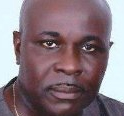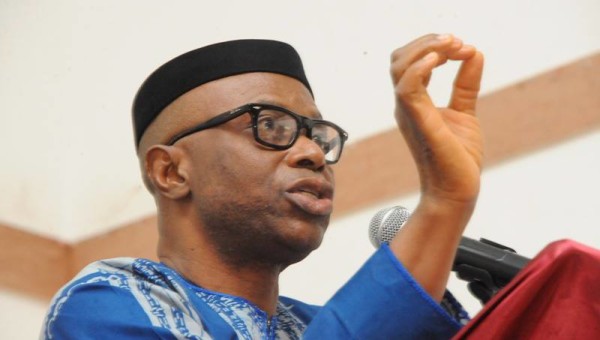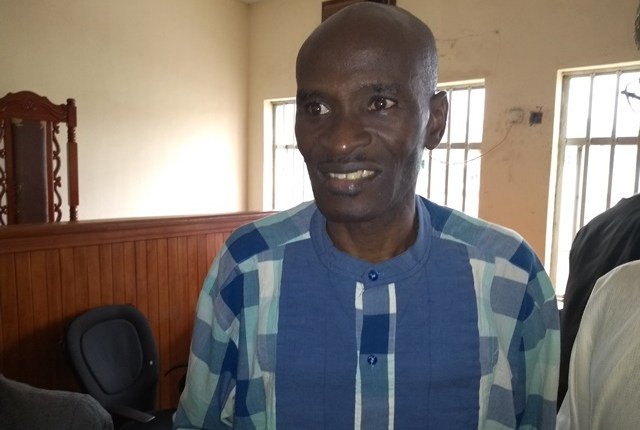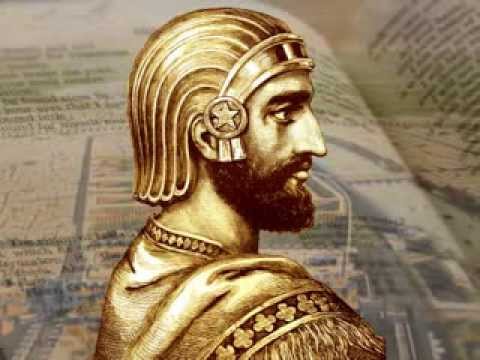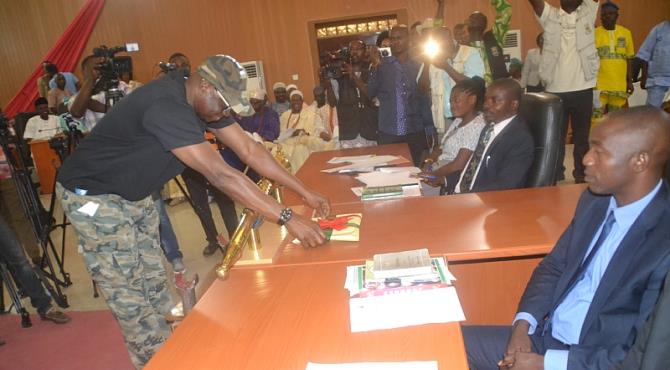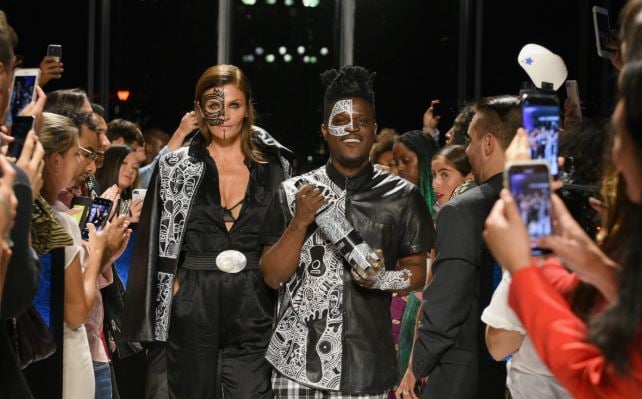We have now fully entered the political season – with its embedded bazaars, festivities, speeches, permutations and configurations. Most of the activities in the political space are configured to bring dividends in 2019. The presidential election will define the year 2019 and will be a watershed in the life of current political gladiators. We are effectively on the road to Damascus.
For non-Christians and others not conversant with the Bible, the ‘road to Damascus’ is an allegory used to refer to a sudden turn-around in the trajectory of one’s life. It is based on the biblical conversion of Saul, a persecutor of Christians, to Christianity, on his way to Damascus to persecute Christians. With his conversion, Saul was renamed Paul. The road or the journey to Damascus was a defining moment for Paul.
For the main political gladiators, 2019 will be a defining year: either dreams die first or they are actualized when they confront reality.
As the countdown begins, which issues will drive the election, and which ones will determine the outcome of the elections? Let me mention that the issues that will drive the elections are not necessarily the issues that will determine the outcome of the elections. Campaign issues (campaign rhetoric) and issues that will determine the outcome of the election can be markedly different.
Advertisement
Campaign issues are themes around which several of the candidates will weave their manifestos and make certain promises. But in societies like ours, where most of the voters make up their minds on who to support well before the elections – in fact as soon as the candidates are announced – campaign issues, just as political debates in the country, rarely influence the outcome of elections. True, candidates approach these issues with seriousness, sometimes just to make themselves competitive, their impact on the outcome of elections are very negligible, if at all. The number of ‘undecided voters’ to be swayed by such issues is extremely small.
The campaign issues for the 2019 presidential election will be the usual suspects – the economy and its management, insecurity (especially attacks by herdsmen) the provision of infrastructure, fighting corruption, provision of healthcare, education and restructuring of the country. Of these campaign issues, expect a lot of grandstanding on the issue of ‘restructuring’, including on who stands for ‘real restructuring’ and who is a latter day convert to the mantra. It is remarkable that most of the politicians who now talk boldly of the imperative of restructuring are also deliberately vague about what they mean by the concept in order not to alienate sections of the country believed to be opposed to ‘geographic restructuring’.
Irrespective of which party wins the election, do not expect any radical restructuring of the country. Restructuring is just another gesture politics, a new mantra being presented as the magic elixir to all our problems. The truth however is that while I believe that restructuring – defined in terms of both geographical restructuring and devolution of powers and responsibilities to lower tiers of government- will facilitate the nation-building process if managed well, on its own, it cannot be the magic elixir that it is being made out to be.
Advertisement
Similarly, a party’s manifesto, (as important as such may be in mature democracies as referents for the party’s campaign rhetoric), can rarely impact on the outcome of the election. There are hardly undecided voters in Nigeria. It can be argued that most Nigerians make up their minds quickly on who they will support as soon as major presidential candidates are named. Some voters – those you may call ‘apathetic’ or ‘undecided’ – are more willing to sell their votes than others. Vote selling is usually more pronounced in local elections such as gubernatorial elections than in presidential elections because the dynamics that drive the elections are different.
There are issues that lend themselves to gesture politics – where the politicians are likely to deliver similar sounding emotive messages they hardly believe in such as on empowering the youth, empowering women and fighting unemployment. I do not think that young people or women or even the unemployed privilege their identities as young people, women or the unemployed over their primordial identities.
In essence, just because a party has youth-friendly policies will not mean that the party will win the votes of young people. Such demographics will probably matter as the country’s nation-building processes mature and our democracy has deepened – but not in the 2019 election. Again largely because the two major political parties – PDP and APC – are likely to field Muslims from the North, the role of our traditional fault-lines of ethnicity, regionalism and religion will be muted. It will however be a different matter if the PDP chooses its presidential running mate from the South-east. Depending on the person chosen, such a choice can accentuate the rivalry between the South-east and the South-west, as the latter will come to interpret it as an attempt to edge them out of their ‘lucrative’ alliance with the North. If the PDP chooses a candidate from the South-east, it may drive the South-west even closer to the APC.
Though Nigeria is an extremely polarized society, Nigerians appear to have achieved consensus on some political issues. For instance many Nigerians seem to agree that the level of despondency in the land is unacceptably high; that the level of hardship and poverty has reached alarming proportions; that the country has probably not been as polarized as it is now since the end of the Civil War and that insecurity is pervasive in the country. They however disagree on who to blame for this state of affairs: while those opposed to Buhari’s second term aspirations will blame it all on Buhari’s assumed ‘clannishness’ and incompetence, his supporters blame it all on the 16 years of PDP’s ‘clueless’ rule.
Advertisement
On the pervasive insecurity in the country for instance, while Buhari’s supporters will point to the gains made in the fight against Boko Haram, especially the recovery of most of the territories seized by the terrorists prior to Buhari coming to power, critics of the government will however focus on the ‘Fulani herdsmen’, suggesting either categorically or by innuendo that the President has treated the group with kids gloves only because he comes from the same Fulani ethnic stock as they. Supporters of the government avoid calling them ‘Fulani herdsmen’ and will prefer to talk of ‘farmers’- herders’ clash or classify the terrorism of the herdsmen as mere rural banditry.
There are three major drivers that will impact on the outcome of the election:
The first is the choice of PDP’s presidential candidate. For the candidate to be able to win, he must not only be able to appeal to Northern voters to be able to dampen Buhari’s cultic hold on parts of the Muslim North, but must also have a wide acceptance in the Southern part of the country.
The second important driver will be ability of the two main parties to play the fear game. Here Buhari’s autocratic past, and certain misuse of state agencies (such as the DSS’s siege on the National Assembly and the police raid on the home of 93 year old Edwin Clark) are being exploited by the PDP to scare both local voters and the international community that Nigeria’s democracy will come under threat if Buhari is re-elected for a second term in office. APC has its own ‘fear game’. It routinely reminds Nigerians that voting for PDP will mean bringing back to power the “treasury looters” who brought us to “this mess.”
Advertisement
A third factor that may impact on the outcome of the elections is the role of leading Western powers and their agencies. For instance Western countries and institutions which either openly or tacitly supported Buhari in 2015 seem to be against his re-election. A good example is The Economist magazine which supported Buhari’s candidacy in 2015 but which now believes his re-election will hurt Nigeria’s growth potentials. HSBC, a multinational banking and financial services company took a similar position. Relatedly, British Prime Minister described Nigeria (under Buhari) as the poverty capital of the world. Earlier it was reportedly that Donald Trump, described Buhari as “lifeless” after the latter’s well dramatized visit to the White House. Amnesty International has also been critical of the government’s human rights record.
How will these dim views impact on the outcome of the 2019 presidential election? This remains to be seen.
Advertisement
